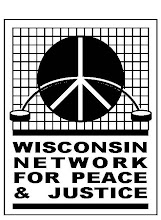Each year Memorial Day brings forth speeches, editorials, essays, poems, songs, and other attempts by survivors and non-participants to comprehend and justify war. The libraries of war songs and stories grow over time in inverse proportion to our collective memory of the harsh realities of death, destruction, and disruption that are the essence of war.
Fading memories seem unable to bear what really happened.
Was that true for my grandfather? I can only speculate, born 15 years, as I was, after grandpa died in 1926.
His first name was Herman. Information about him is limited but compelling, as collected by my brother, our family’s faithful historian.
Grandpa’s obituary, published under the headline “Veteran is Buried Tues.,” tells many stories. He died in 1926 at a son’s house in the Town of Springvale, Fond du Lac County, five weeks after suffering a stroke on his way home from the national Grand Army of the Republic (GAR) convention. He was 77.
What was the GAR? Grandpa’s obituary didn’t describe the GAR, a very political fraternal organization of veterans of the Union Army who served in the Civil War. The GAR, similar to mainstream veterans’ groups today, was so influential after its founding in 1866, one year after the Civil War ended, that no Republican was nominated to the presidency without GAR endorsement until 1908.
The obituary continues: “The deceased was born in a log cabin in Oct. 22, 1849 near West Bend.” Wait a minute! If he was born in 1849, how could he have been a Union soldier?
In the next paragraph we learn: “Mr. Giffey’s service in the war was twice refused because of his youth. The first time he enlisted he got to Milwaukee and the second time he was returned from St. Louis. Finally, at the age of 14, he was accepted as a drummer boy. He celebrated his 15th birthday at Appomattox Courthouse (Virginia), where he was on duty. He was a member of Co. I, 17th Wisconsin Volunteers. He participated in Sherman’s march to the sea, and was imprisoned in the Libby prison (Richmond, Virginia) for two months. He was wounded in the leg and captured at the battle of Wilcox Ridge. This wound caused him to limp the rest of his life, and he carried a cane during his last years.”
My brother’s research indicates that our great-grandmother signed a consent form stipulating that her son was 17 years old when, in fact, he wasn’t even 15. She probably received $200 or $300 as a “substitute fee” paid by a conscripted person prosperous enough to pay the fee and avoid military service. That fee could be compared to deferments enjoyed by college students during the Vietnam War. Wealth and military service have long been incompatible.
What could motivate a teenager to so eagerly march off to probable death? Did Herman see himself as freeing the slaves? I doubt it. Probably, as my brother suggested, he was tired of milking cows and the Union army needed bodies.
One hundred years after my grandfather was discharged from service, I was drafted and sent to Vietnam. In the 43 years since I returned from that war, I’ve puzzled over my motives as well. A burning desire to sacrifice myself in order to “keep America free” never entered my thoughts. America wasn’t endangered, as we have learned, by that civil war in Southeast Asia. I went to war under orders. The fact that my name isn’t among the 1.3 million Americans killed outright in wars since 1775 is a matter of pure luck. So, while my heart is emptied at Memorial Day each year at the thought of loved ones grieving for their lost soldiers, I can’t restrain myself from asking: Why war?
With that question in mind, we embarked on another walk last Saturday along part of Highway 14. It was the 140th time since the beginning of the current war in Iraq six years ago that I’ve walked along the road carrying a sign saying “Peace.” The day was pleasant, calm and cloudless. Most people passing by ignored us. A few waved and gave us the peace sign. Fewer still were hostile and gave us half of the peace sign.
Two days later during Memorial Day programs in two River Valley schools I listened to the solemn recitation of hundreds of names of local veterans now dead. The roll calls were long and growing longer.
I’ve heard the term “Nobody wants war” while observing citizens near and far embrace war after war. And I’ve also observed, with wonder, how the word “peace” elicits angry responses. If I could talk to my grandfather, I’d tell him that I think war isn’t inevitable, that peace is attainable and not just another story.
David Giffey is the editor of Long Shadows: Veterans’ Paths to Peace.
Subscribe to:
Post Comments (Atom)










No comments:
Post a Comment